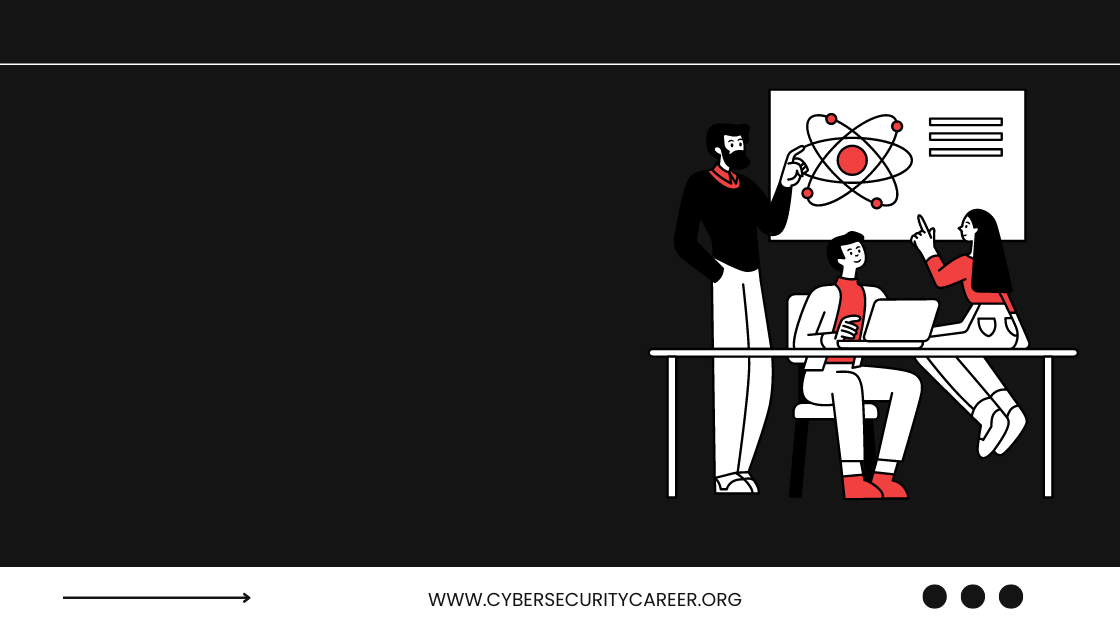Cybersecurity engineering is a rapidly evolving field constantly adapting to meet the changing needs of businesses and organizations. Cybersecurity engineers are becoming increasingly important in today’s tech-driven world, from protecting data to mitigating risks. But what exactly is cyber security engineering? And how can it help protect your business from cyber threats? In this blog post, we’ll discuss what cybersecurity engineering is and some of its key components. We’ll also highlight the importance of hiring qualified professionals with experience in this field.
What is Cyber Security Engineering?
Cybersecurity engineering is designing, building, and maintaining secure computer systems. It includes the development of security policies and procedures, as well as the implementation of security technologies. Cybersecurity engineers work to protect information systems from attacks by identifying and addressing vulnerabilities. They also develop plans to respond to incidents and disasters.
The Different Types of Cyber Security Engineering
There are three main types of cybersecurity engineering: network, application, and information security.
Network security is securing a computer network from unauthorized access or attack. It includes firewalls, intrusion detection systems, and encryption technologies.
Application security focuses on protecting the software applications that run on a computer system from attacks. It includes input validation, output encoding, and secure coding practices.
Information security is the practice of protecting electronic information from unauthorized access or destruction. It includes data encryption, access control, and activity logging.
The Three Pillars of Cyber Security Engineering
Cybersecurity engineering has three main pillars: confidentiality, integrity, and availability.
Confidentiality ensures that sensitive information is not seen or accessed by unauthorized individuals. Integrity means that data cannot be changed without permission, and availability guarantees that authorized users can access the data when needed.
Each of these pillars is important in its own right, but they also work together to create a strong overall cyber security posture. For example, if confidential data is compromised, it can jeopardize the system’s integrity. Similarly, if data is unavailable when needed, it can impact the system’s confidentiality and integrity.
Cybersecurity engineering must take all of these pillars into account to be effective. By ensuring that data is kept confidential, accessible, and secure from unauthorized changes, organizations can protect their most valuable assets from threats.
The Five Main Categories of Cyber Security Engineering
Cybersecurity engineering is designing, building, and maintaining secure systems. It encompasses various activities, from developing secure code to deploying intrusion detection systems.
There are five main categories of cybersecurity engineering:
- Security architecture and design: This involves creating a secure system from the ground up. This includes everything from choosing the right technologies to using security best practices in the design process.
- Secure coding: This ensures that the code that makes up a system is free of vulnerabilities that attackers could exploit.
- Intrusion detection and prevention: This helps detect and prevent attacks before they can do damage. This can be done through technical measures (like firewalls) and human monitoring (like intrusion detection teams).
- Incident response: This deals with what happens after an attack has occurred. It includes steps like containing the damage, assessing the impact, and restoring normal operations.
- Cyber risk management: This helps organizations identify, assess, and mitigate risks related to their use of technology. It includes developing policies and procedures to train employees on cybersecurity best practices.
The Benefits of Cyber Security Engineering
There are many benefits to cybersecurity engineering. By design, it is a comprehensive and proactive approach to protecting networks and systems from attack. Additionally, it helps organizations improve their security posture by identifying vulnerabilities and implementing controls to mitigate risks.
Organizations that invest in cyber security engineering can enjoy several benefits, including:
- Improved security posture: Cybersecurity engineering helps organizations to identify vulnerabilities and implement controls to mitigate risks. This results in an overall improvement in the security posture of the organization.
- Proactive protection: Cybersecurity engineering is a proactive approach to protecting networks and systems from attack. This allows organizations to be better prepared for attacks and minimize the impact of an attack if one does occur.
- Cost savings: Cybersecurity engineering can help organizations save money on damages and lost productivity by preventing attacks and minimizing the impact of those that occur. Additionally, it can help organizations to avoid the costs associated with regulatory fines and penalties.
How to Become a Cyber Security Engineer?
Most cybersecurity engineers have a bachelor’s degree in computer science, information assurance, or a related field. Some employers may require a master’s degree or professional certification.
To become a cyber security engineer, you will need strong analytical and technical skills. You should be able to identify security risks and develop solutions to mitigate them. Additionally, you must be able to communicate effectively with others to coordinate the implementation of security measures.
Pros and Cons of Cyber Security Engineering
As with any engineering discipline, cybersecurity engineering has pros and cons. On the plus side, cybersecurity engineers are in high demand as businesses increasingly invest in cybersecurity. They can command high salaries and often have the opportunity to work on interesting and challenging projects. Additionally, cyber security engineering can be a very rewarding field, as it allows professionals to help keep people safe from online threats.
On the downside, however, cybersecurity engineering can be a stressful and demanding field. Engineers may work long hours to meet deadlines and may need to be on call in case of emergencies. Additionally, because cyber threats are constantly evolving, engineers must continually update their skills and knowledge to stay ahead of the curve.
What Jobs Involve Cyber Security Engineering?
As the world becomes increasingly digital, so make the threats to our online security. That’s where cyber security engineering comes in. Cyber security engineers are responsible for designing and implementing systems and software to protect computer networks and systems from attack.
To do this, they must have a strong understanding of computer science, network security and cryptography. They also need to be able to think like a hacker to anticipate the latest security threats.
Most cyber security engineering jobs involve working in a team of other engineers, analysts, and testers. The job may also require some travel to meet with clients or attend conferences.
Alternatives to Cyber Security Engineering
There are many possible alternatives to cyber security engineering, depending on your specific goals and needs. Some possible fields of study or work that may be relevant include information security, computer science, network security, software engineering, web development, database administration, and more. Many of these fields overlap and can provide valuable skills and knowledge for a career in cybersecurity engineering. It is important to research and figure out what area(s) you are most interested in before making any decisions.
Conclusion
Cybersecurity engineering is an important field in the modern world and continues to evolve as technology advances. Those interested in becoming cyber security engineers must be knowledgeable in computer science, IT infrastructure, system architecture, and risk management. They need a comprehensive understanding of securing networks from malicious actors, protecting data from unauthorized access, and maintaining compliance with industry regulations. With the right knowledge and skillset, you can become a valuable asset for any company looking to ensure their digital assets remain safe and secure.










Leave a Reply